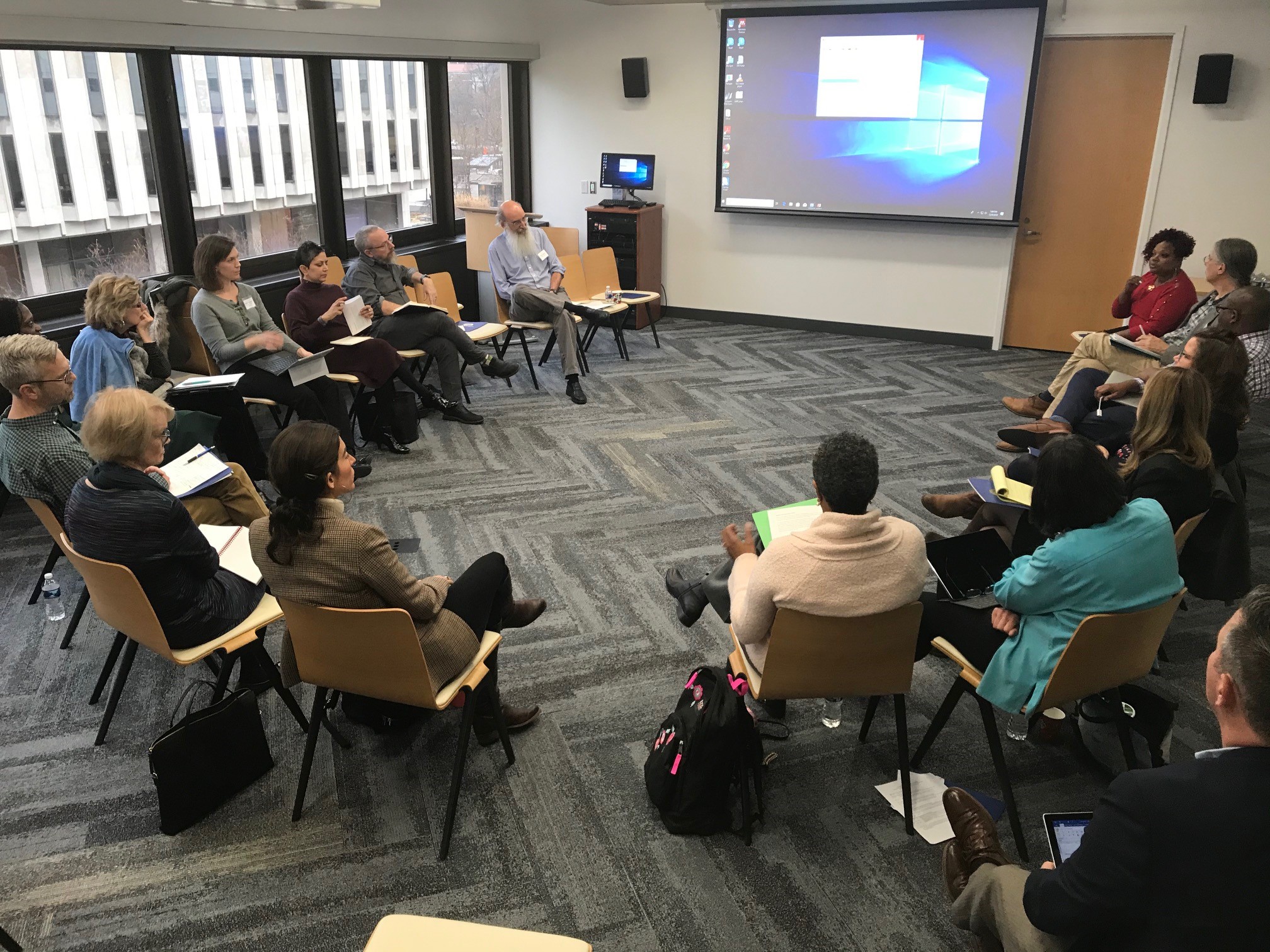
Laying Roots to Become a National Center for Rural Education
In small towns across America, public schools are a community lifeline. When they struggle, their community struggles. And many rural schools are feeling the pain. Enrollment is declining, costs are rising, public health is worsening, and there is a shortage of qualified personnel.
“Rural education is important. A lot of people don’t understand how important it is and take it for granted,” said Tom Farmer, a professor at the University of Pittsburgh School of Education and the chair of the Department of Psychology in Education.
Farmer knows from personal experience. He grew up in a tiny town in southwestern Virginia. His community by and large did not have employment opportunities that required a college education. The attributes prized by his community were hard work through blue-collar jobs and self-sufficiency, which have merit but can constrain people to certain social roles. Farmer recalls that his teachers and the town doctor were the only people he knew with a college degree.
As a faculty member at Pitt Education, Farmer wants to uplift rural education across the United States. He plans to build new partnerships that are responsive to the needs of rural students, their families, and the communities in which they live. To accomplish that, he has begun laying the groundwork to create a new academic center on rural education at the University of Pittsburgh School of Education. The tentative name for the center is the Community Collaboration on Adaptive and Responsive Education (CARE) for Rural Schools Center.
This past December, Farmer and his colleagues at the School of Education took steps to kickstart the center’s creation through an advisory workshop on rural education. Featuring sessions on workforce development, out-of-school learning, rural identity, and rural diversity, the workshop was held in Posvar Hall and was attended by more than 30 faculty and staff from Pitt Education, the University of Pittsburgh, and the University of North Carolina, University of Georgia, and Penn State University. In addition, Sheryl Threadgill-Matthews, a lifetime rural education advocate and community leader in regions in the Deep South, provided insights on community needs and mobilization.
Geographically, Farmer believes that the University of Pittsburgh is well situated to study rural education. Within a 50-mile radius of the Pittsburgh metropolitan area, there are thousands of rural towns in Pennsylvania, Ohio, and West Virginia.
Exploring the Diverse Assets of Rural Communities
At the kick-off session, faculty from Pitt Education and North Carolina, Georgia, and Penn State explored the dynamics of rural education. Among the questions considered was how to generate support for research-practice partnerships that create mutual benefit for the community partner and the research institution.
Valerie Kinloch, the Renée and Richard Goldman Dean of the Pitt School of Education, talked about her own experiences growing up in Charleston, S.C. She had a positive childhood, one that was educationally and socially rich but which was also filled with tensions that she still grapples with today.
For example, Kinloch shared that she felt some tension with receiving a high-quality and engaged education in urban schools in Charleston, whereas some members of her extended family did not always have similar experiences in rural settings. There was also the tension she felt between the value placed on learning that happens inside schools in juxtaposition with the important but often unrecognized learning that happens in communities and in home-based contexts.
“How do we think about the narrative differently? How do we be present and contribute to others’ learning based on what people say they want and need versus what we think they need?” asked Kinloch.
“That’s a different way of thinking about learning,” continued Kinloch. “Because learning doesn’t just happen inside schools. It’s thinking about learning by understanding that learning has always happened inside of homes and in communities.”
Those sentiments were also echoed by Dana Thompson Dorsey, a Pitt Education faculty member and the associate director of research and development at the Center for Urban Education (CUE). Thompson Dorsey pointed out how people often view rural communities from a deficit perspective. They see what communities don’t have, like a library, but don’t see the positive attributes in the community, such as strong social ties and a sense of shared history.
“There’s a lot of things they have that you can’t just buy. These are the riches of community,” said Thompson Dorsey.
Leigh Patel, the associate dean for equity and justice at Pitt Education, said that for outside researchers and educators to be effective in rural communities, they must meet the community where they are. Engaged partnerships that involve learning with and from communities are a must.
“We have to be in the places where folks are living and feel their daily rhythms,” said Patel.
Creative Solutions for the Rural Education
Much of the discussion at the advisory workshop was focused on a community-centered approach to rural education.
That means listening to school and community needs, rather than coming in with preconceived notions about what problems they have and what solutions should be offered.
Furthermore, one-size-fits-all approaches are also to be avoided, said the faculty, because it ignores the incredible diversity of rural communities. No two small towns are alike.
Tom Akiva, an associate professor at Pitt Education and the director of the school’s Doctor of Education program, said it is important to think broadly about all spaces where learning occurs. Out-of-school learning environments, including after-school activities, are deeply important “third places” in children’s lives that are not home or school but provide a sense of belonging.
“It’s this idea of sanctuary, a place where you get something that you don’t get anywhere else,” said Akiva.
The kick-off session closed with a call for the faculty and staff to take steps to build greater awareness around rural education. Farmer will continue to build out the proposal to develop the center for rural education at Pitt Education. He currently serves as the director of the Rural School-Community Partnership Consortium and previously served as the director of the National Research Center on Rural Education Support.
“We’re here to ignite learning in rural education, and we’re here to do it collaboratively. The energy that is here in the School of Education around the mission-vision really needs to be in rural education,” said Farmer.




